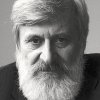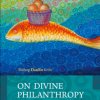Borislav Stanic is an art-lover who came to L.A. from Belgrade, Yugoslavia (now Serbia), on a visit 23 years ago and decided to stay.
In Europe, he'd been an author and publisher of art books; hoping to find an L.A. museum guide for his own use, he discovered that none existed and decided to fill the gap.
His Los Angeles Attractions (Museon Publishing) is an exhaustive guide to every collection of art, artifacts and vehicles, every historic site, aquarium, botanical garden and zoo he's been able to uncover in Los Angeles County, the world may well conclude that it didn't know the half of it.
.








